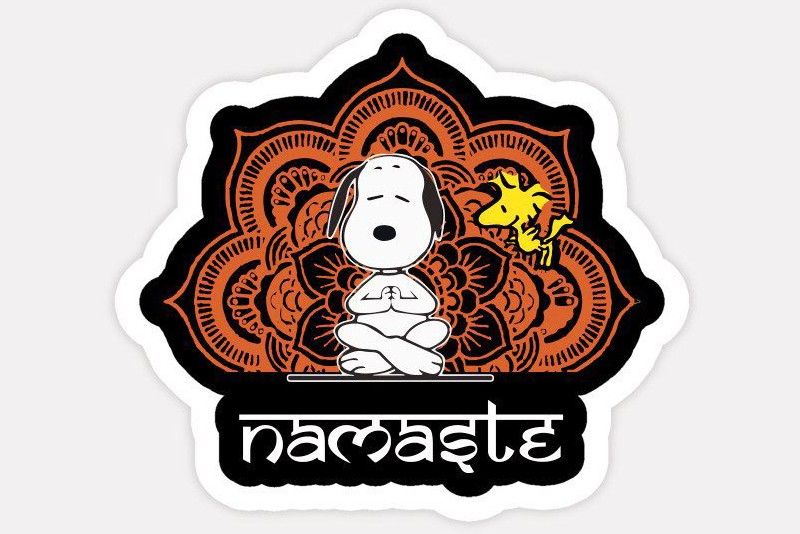Bless others and be well

‘Blessing means not harming, hurting, criticizing or dismissing; if any of these is present, blessing isn’t. Don’t let blessing feed a subtle superiority, the bless-er who is better than the bless-ee.’
Many of you responded positively to my feature last week about how wishing others well can actually make us well. That inspired me to look into the insights of New York Times bestselling author Dr. Rick Hanson.
Dr. Hanson is a psychologist and a senior fellow of the Greater Good Science Center at UC Berkeley. This summa cum laude graduate of UCLA and founder of the Wellspring Institute for Neuroscience and Contemplative Wisdom wrote the bestselling book Hardwiring Happiness.
In a feature published in Psychology Today, he said that he has three strategies to win over the negativity bias of our brain. These are meditation, taking in the good and blessing people.
According to Dr. Hanson, meditation includes mindfulness, training attention, contemplation, concentration, absorption, non-ordinary consciousness and liberating insight.
The second strategy, “take in the good,” is a conscious effort to overcome the negative bias of the brain by seeing the good in the world and in yourself. He advised that we should “be intimate with (our) experience, have and absorb positive experiences.” Dr. Hanson suggested allowing the positive to soothe and replace the negative.
Previously, I also discussed how the attitude of gratitude allows us to heal and grow. Experts suggest we begin by writing down things we are grateful for daily in a diary. There are even apps that allow you to keep virtual lists of people, things and moments you are thankful for.
I was not aware that our brains have a bias towards the negative, just like our taste buds have a bias for sweets. But, just like our taste buds, our brains and biases can be retrained. Aside from meditation and taking in the good, Dr. Hanson recommended the practice of blessing people.
While it has religious connotations, Dr. Hanson emphasized that he is not using it that way. “Blessing includes compassion, kindness, appreciating, honoring, non-harming, warmth, cherishing, and love; you can see I’m using this word broadly. It’s leaning toward pain rather than away, helping rather than harming, giving rather than withholding, opening and extending rather than closing and contracting, wishing well rather than ill, delighting in rather than finding fault. You can bless others, the world, and yourself — and any parts of any of these,” he clarified.
Since blessing is also wishing others well, it is a practice that is also good for you.
“It strengthens gratitude and gladness, opens your heart, deepens connection, and tends to evoke good treatment from others. You experience people and the world as blessed rather than threatening, disappointing or rejecting. By blessing, you feel blessed,” added Dr. Hanson.
Instead of ignoring people, deliberately feel warm toward them. Look for good things in people instead of searching for flaws. Be kind. Understand the hopes and sufferings of people, recognize their efforts and sacrifices. Discover what is good in people.
“You can express good wishes with actions — a touch, a door opened, a charitable gift — or words (e.g., “may you be at peace, may you be loved”), or inside your heart alone,” he suggested.
“Blessing means not harming, hurting, criticizing or dismissing; if any of these is present, blessing isn’t. Don’t let blessing feed a subtle superiority, the bless-er who is better than the bless-ee. Let others be who they are, and don’t presume you know what they need. In the moment of true blessing, there’s little if any sense of self, of I-me-mine. You bless for them, not for yourself,” Dr. Hanson warned.
Feel blessed and pass that blessing not only to those you love but also to strangers or even those who are difficult. Wishing your enemies well may even release them as the cause of your stress or anxiety. You can still feel blessed even if you are in pain or in a crisis. It is an attitude, a disposition, an inclination to always find something to be thankful for.
“You can be pressed and stressed and still bless. Find your warmth and good wishes amid the mental clutter, like hearing wind chimes outside amid storm and rain. But also take care of yourself. It’s hard to bless if you feel bad. Blessing does not mean approving; you can wish people well while also disengaging from them,” Dr. Hanson concluded.
* * *
Post me a note at mylene@goldsgym.com.ph or mylenedayrit@gmail.com.



















